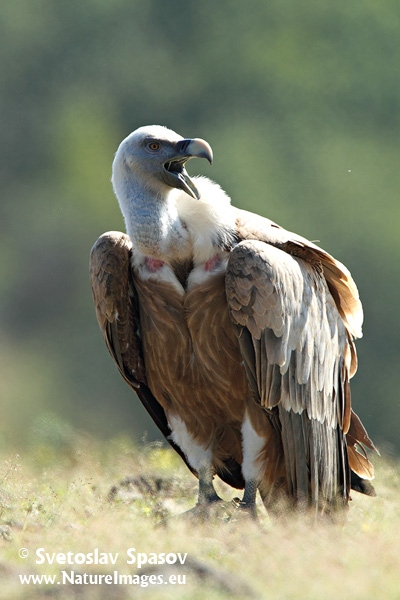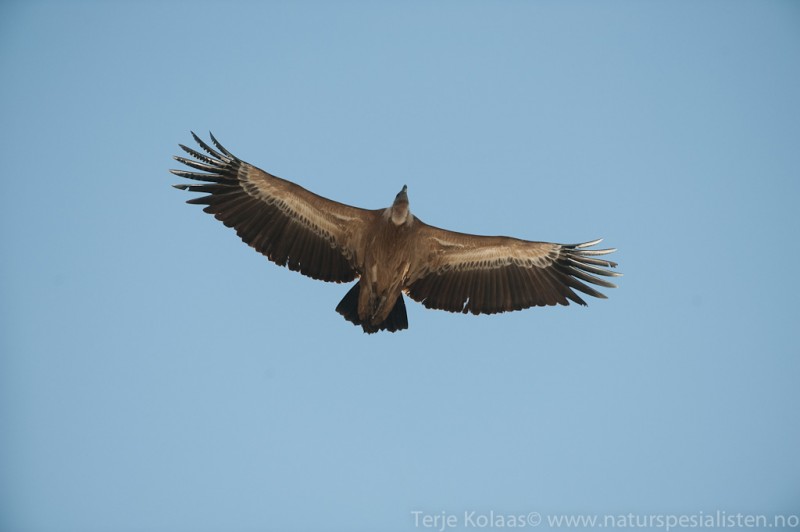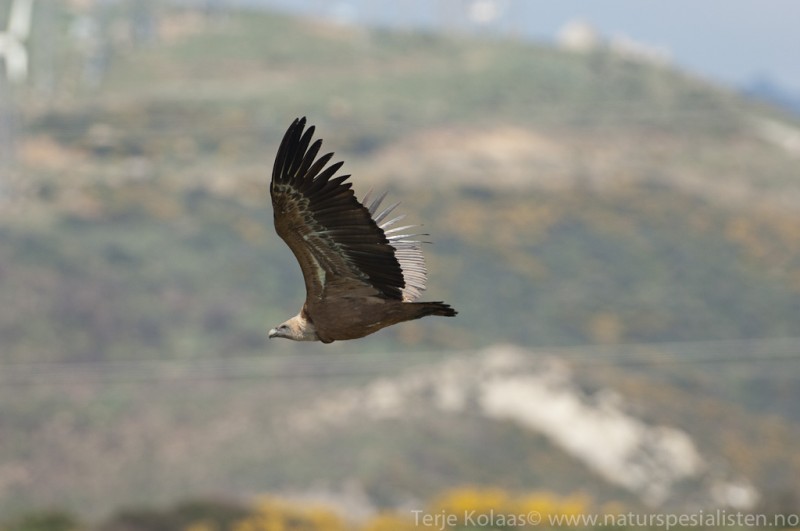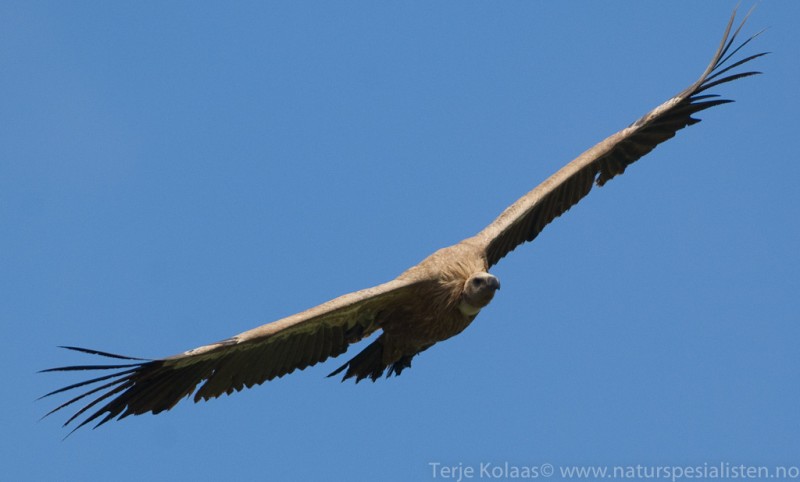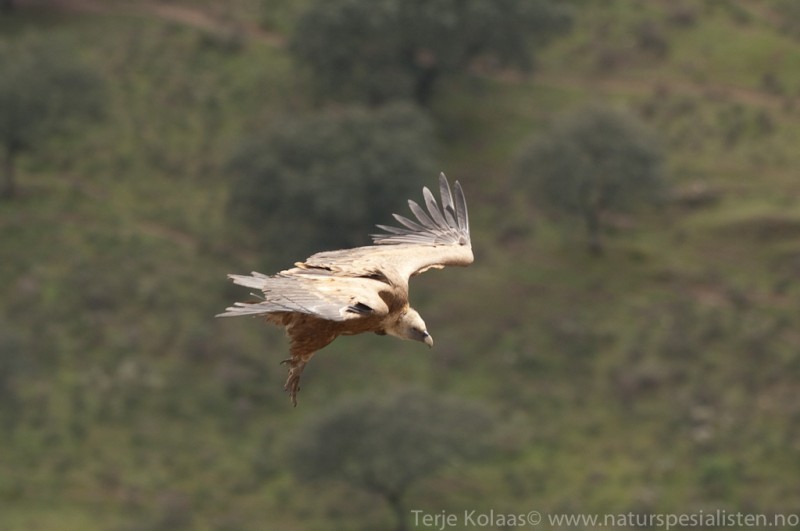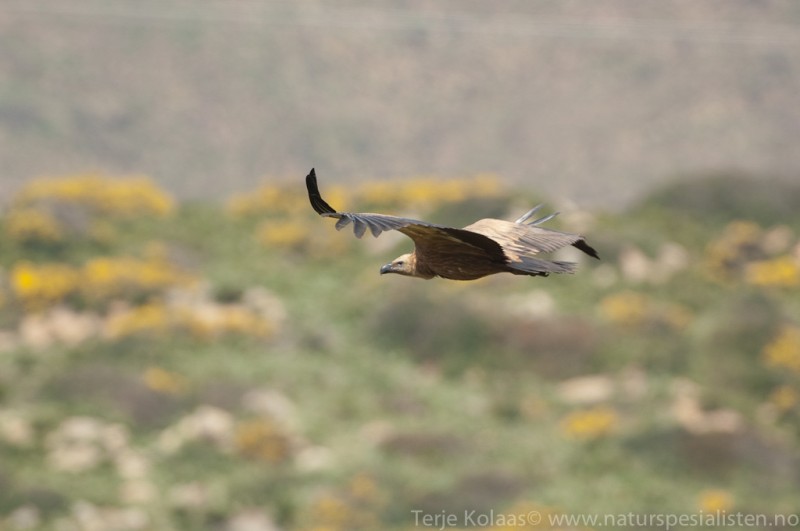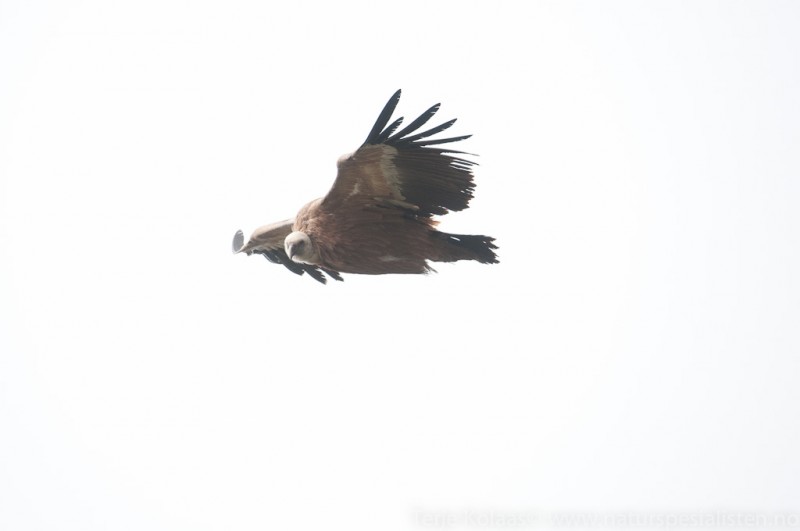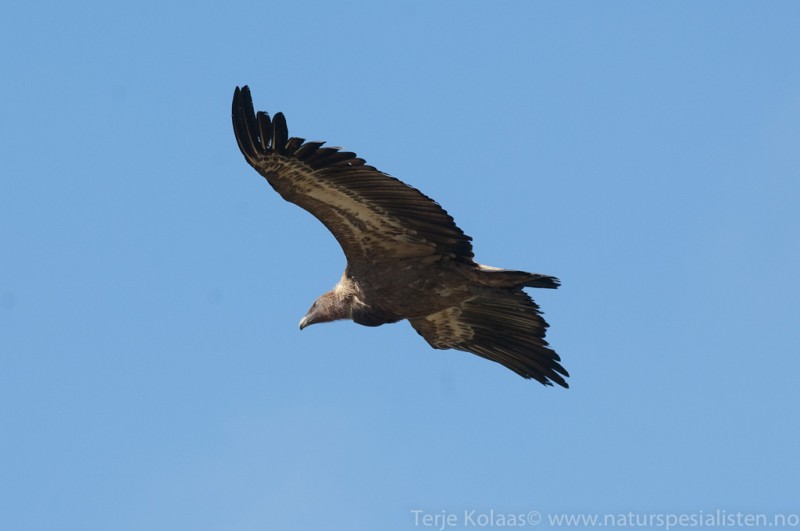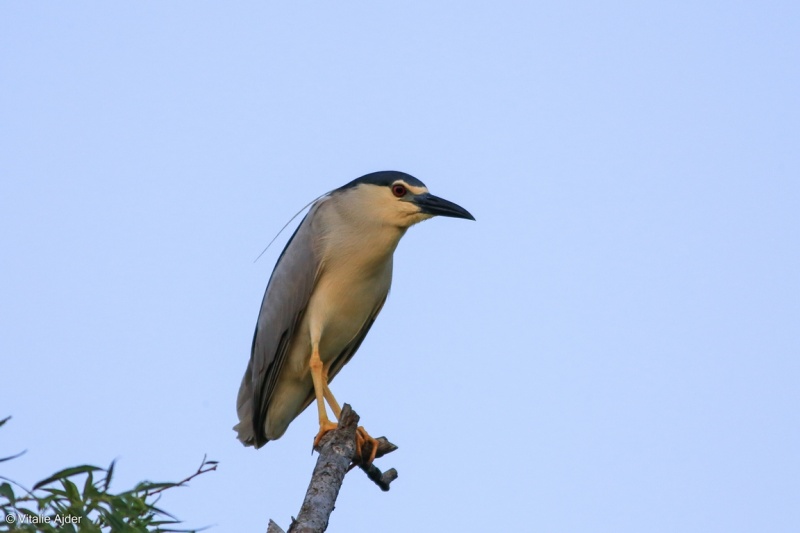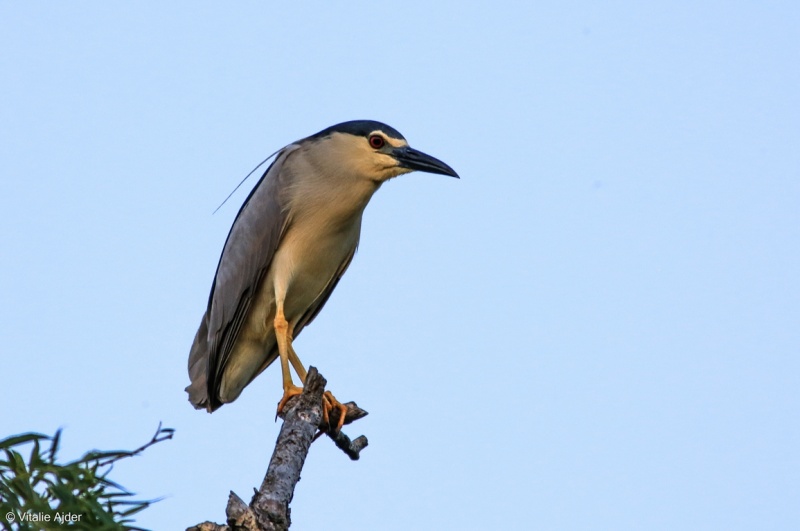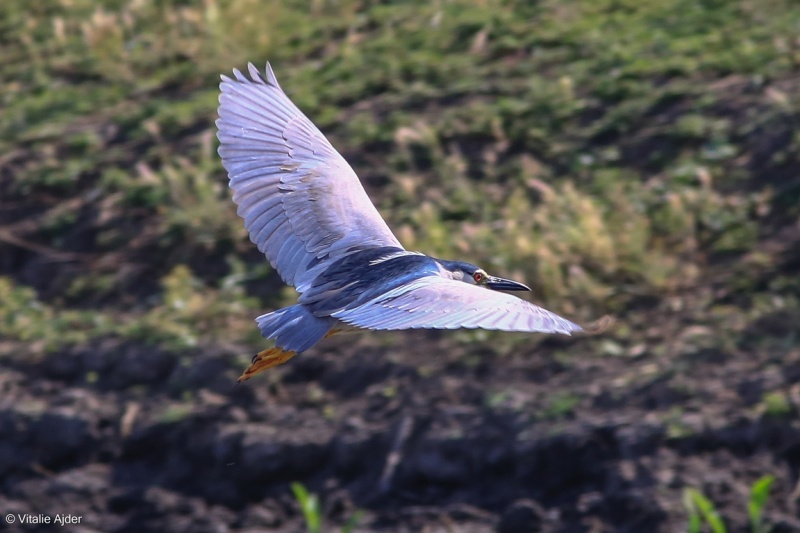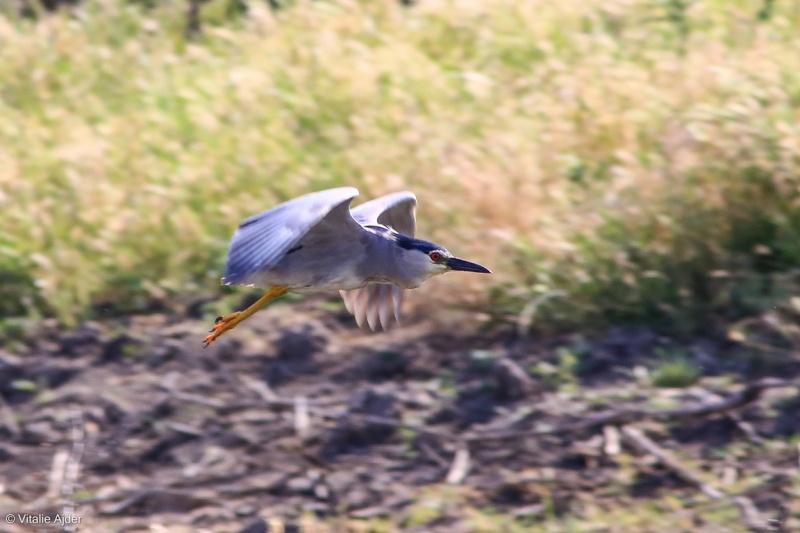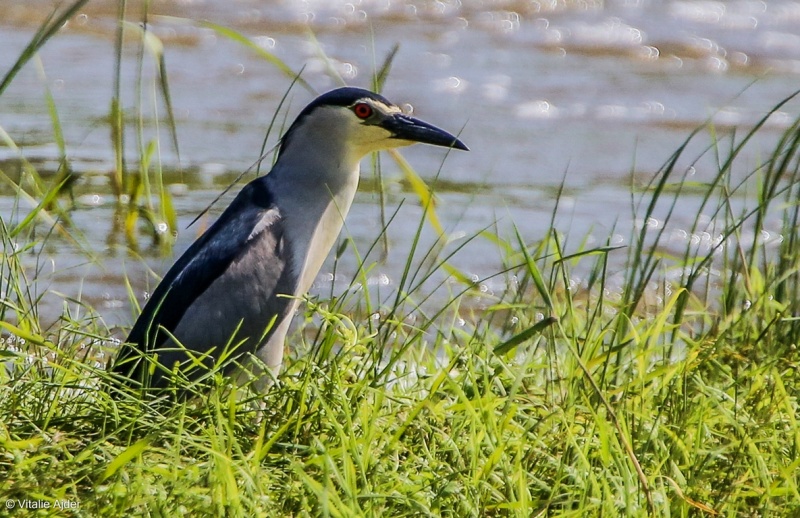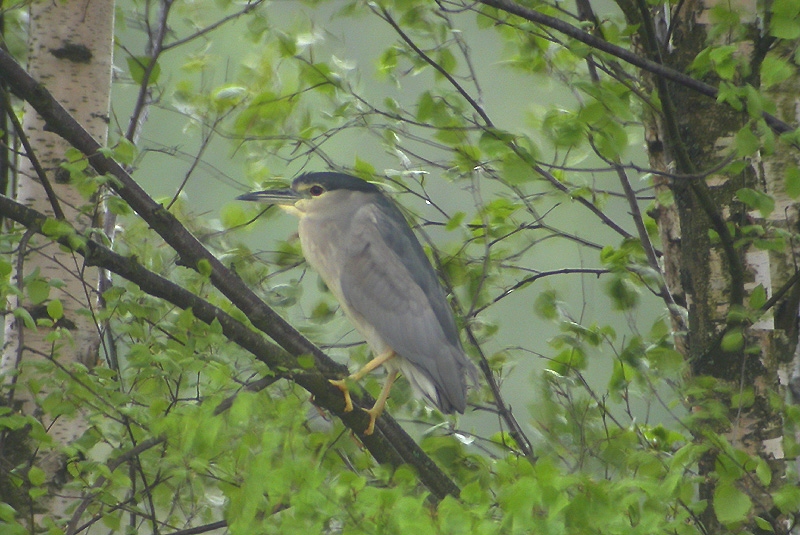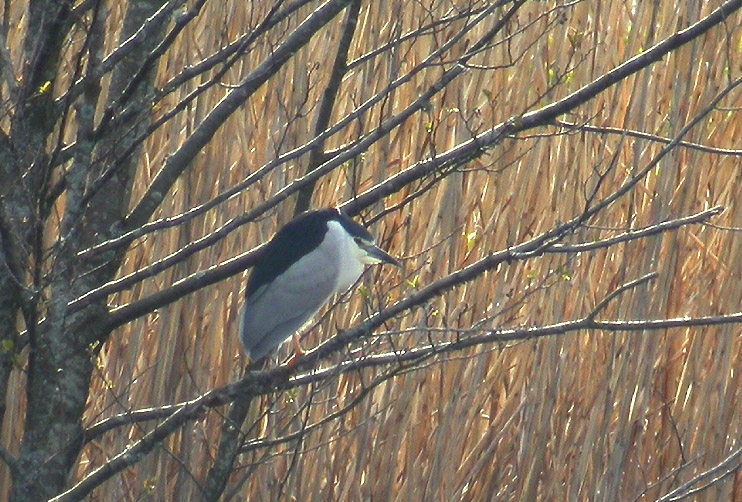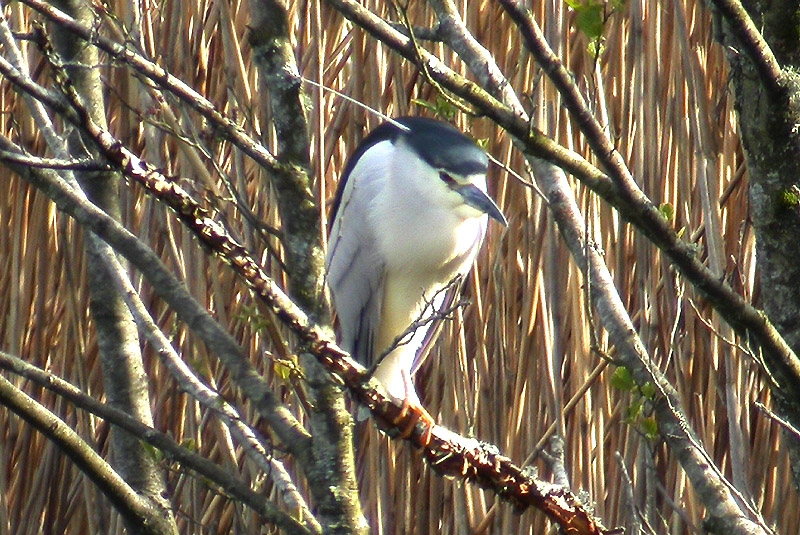Griffon Vulture (Gyps fulvus)
Night Heron (Nycticorax nycticorax)
Huge bird of prey with almost white head, neck and ruff. Body buff and wing-coverts pale buff in marked contrast to dark flight-feathers (opposite of Black Vulture). Silhouette typical with small head and short tail. Wings with S-shaped trailing edge, and very long and widely separated primaries. Soars with wings raised in shallow V. Glides on bowed wings, with slightly folded and depressed primaries.
Sound:Quite vocal for a vulture, but generally silent in flight. Various shrieking high notes, hissing, and harsh cackling sounds.
Squabbling:
Distribution:
Wikipedia: map (se also Xeno-canto below)
Ecology:Birdlife ecology
Links:
Observation.org Latest observations
Image search Flickr NB! May give other species
CCSound recording:Recorded by Fernand Deroussen,http://www.xeno-canto-org/,CC license
Small, crepuscular, stocky heron with short legs. Adults unmistakable with black cap, black back, grey wings and white underparts. Immature less distinct, and may be confused with immature Squacco Heron, Little Bittern or Bittern. Differs from all these in distinct white spots covering both wings and back. Belly and breast are more widely covered in coarse streaking, not just the sides or upper chest. Legs just barely protrudes behind tail in flight.
Sound:Most commonly hear call is a nasal, soft croaking "roack", like cross between Raven and frog.
Flight call:
Distribution:
Wikipedia: map (se also Xeno-canto below)
Ecology:Birdlife ecology
Links:
Observation.org Latest observations
Image search Flickr NB! May give other species
CC
 English
English Albanian
Albanian
 Armenian
Armenian
 Bulgarian
Bulgarian
 Catalan
Catalan
 Croatian
Croatian
 Czech
Czech
 Danish
Danish
 Dutch
Dutch
 Finnish
Finnish
 French
French
 Georgian
Georgian
 German
German
 Greek
Greek
 Hungarian
Hungarian
 Italian
Italian
 Latvian
Latvian
 Lithuanian
Lithuanian
 Macedonian
Macedonian
 Norwegian
Norwegian
 Polish
Polish
 Portuguese
Portuguese
 Romanian
Romanian
 Russian
Russian
 Sami : Lule sami
Sami : Lule sami
 Sami : North sami
Sami : North sami
 Sami : South sami
Sami : South sami
 Scientific names
Scientific names
 Serbian
Serbian
 Spanish
Spanish
 Swedish
Swedish
 Ukrainian
Ukrainian


